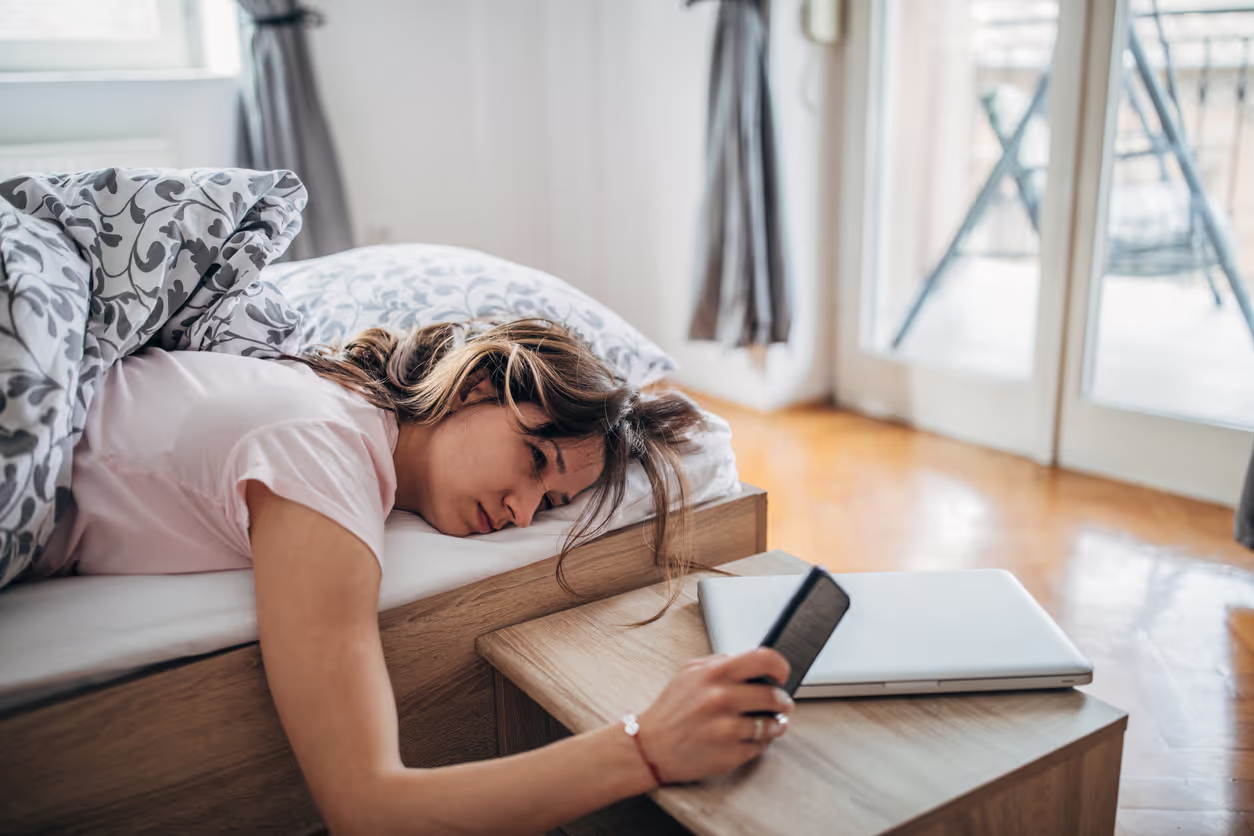How to sleep better when you're stressed

Simple, effective strategies for improving sleep—even when your mind won’t turn off
If you’ve ever tried to fall asleep with your mind racing, you know how deeply connected stress and sleep are. When you’re worried about work, relationships, finances, or just juggling everyday responsibilities, sleep often becomes one more thing to stress about. Unfortunately, that only makes things worse.
The relationship between stress and sleep is a two-way street: stress makes it harder to sleep, and poor sleep increases stress the next day. But the good news? There are simple, evidence-based ways to break the cycle and get the rest your body and mind need.
If you want to know more about your sleep health, try taking our comprehensive free Sleep Assessment and in only a few minutes of answering questions you will receive a free Sleep Health Report.
We have successfully treated insomnia and other sleep disorders for more than 40+ years. Our protocols are proprietary—a direct result of practitioner feedback from thousands of client sessions and training cohorts—meaning more precise, individualized, and trusted outcomes than off-the-shelf CBT‑I. Find out how we can help you achieve lasting improvements to your sleep health, general health and wellbeing. Start your journey here.
How stress affects sleep
When you’re stressed, your body produces cortisol and adrenaline, activating the “fight-or-flight” system. This increases heart rate, body temperature, and alertness—making it much harder to relax and drift off.
Chronic stress also interferes with your circadian rhythm and REM sleep, reducing overall sleep quality and leaving you feeling unrefreshed even after a full night in bed.
How to improve sleep when you're stressed
1. Stick to a sleep routine
Going to bed and waking up at the same time every day helps regulate your internal clock. Consistency builds rhythm—and rhythm supports relaxation.
Even on weekends, aim to keep your schedule within 30 minutes.
2. Set a "worry window" before bed
Instead of letting your mind spiral at night, set aside 10–15 minutes earlier in the evening to write down worries, to-dos, or plans. This helps your brain process stress before it hits the pillow.
Keep a notepad beside your bed just in case—but try not to engage in problem-solving after lights out.
3. Use breathing techniques or guided meditation
Deep breathing slows your heart rate and signals safety to your nervous system. Try:
- 4-7-8 breathing
- Box breathing
- Body scan meditations (available on Calm, Insight Timer, or YouTube)
Even 5 minutes can calm your system and improve your chances of falling asleep faster.
4. Limit news, email, and screens before bed
Stimulating content—especially negative news or work emails—can elevate stress levels. Blue light from devices also suppresses melatonin, making it harder to feel sleepy.
Unplug at least 60 minutes before bed, and create a relaxing wind-down routine instead.
5. Move your body (gently) during the day
Physical activity reduces stress hormones and improves sleep quality. Aim for at least 20–30 minutes of movement daily, even if it’s a walk or gentle yoga.
Avoid intense workouts too close to bedtime—they can raise cortisol and keep you wired.
6. Avoid “sleep effort”
If you’re lying in bed trying hard to sleep, you may be increasing stress without realising it. Ironically, trying too hard to sleep often makes it harder.
CBT-I (Cognitive Behavioural Therapy for Insomnia) teaches you to stop overthinking sleep and retrain your brain to rest naturally.
Final thoughts
Stress and sleep don’t always get along—but you can take control of both. By using calming routines, managing your worries earlier in the day, and creating a supportive sleep environment, you give yourself the best chance of sleeping well, even during stressful times.
If stress and sleep issues persist, consider speaking with a CBT-I trained therapist or mental health professional who can help you develop personalised tools to reset your nights.
Better sleep isn’t just about rest—it’s about resilience. Start tonight with one small change.
Frequently asked questions
Why does stress make it harder to sleep?
Stress triggers the release of cortisol and adrenaline, which increase alertness and prevent your body from relaxing into sleep. This can interfere with both falling asleep and staying asleep.
Can managing stress improve sleep quality?
Yes. Reducing stress through routine, relaxation techniques, and mindful habits can improve both how quickly you fall asleep and how deeply you sleep.
What is a “worry window” and how does it help?
A worry window is a short time set aside earlier in the evening to jot down concerns or to-dos. It helps prevent those thoughts from spiralling when you’re trying to sleep.
Is it okay to exercise before bed?
Gentle activity like yoga or stretching is fine before bed. However, intense workouts late at night may increase cortisol and interfere with sleep.
How does CBT-I help with stress-related insomnia?
CBT-I helps break unhelpful patterns around sleep—like obsessing over not sleeping—and gives you tools to create healthier associations with rest.
Book a time with one of our sleep specialists to get your sleep back on track.






